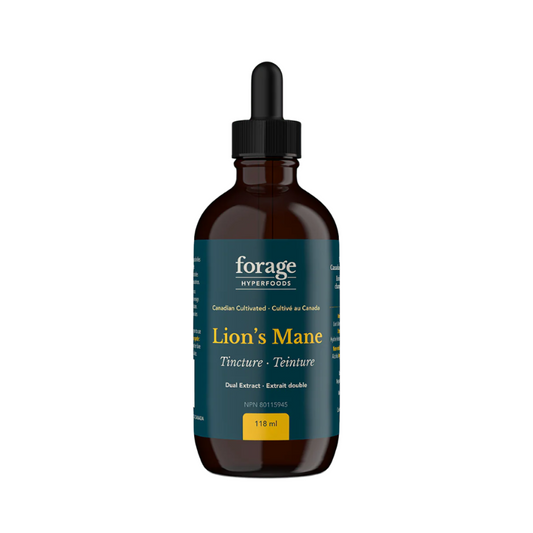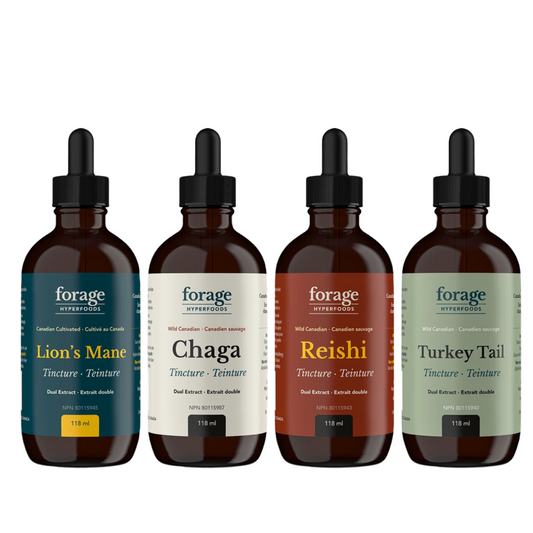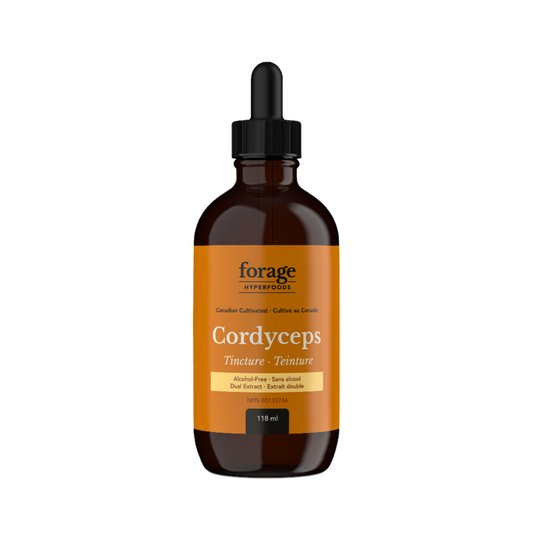
Antioxidant-Rich Diet- the Key to Optimal Health
Share
Welcome to our comprehensive guide on why an antioxidant-rich diet is the key to optimal health. We will delve into the world of antioxidants and their profound impact on our overall well-being. Antioxidants are the powerful compounds found in various foods, that play a vital role in protecting our bodies from the harmful effects of free radicals. We will explore the detrimental effects of free radicals on aging, chronic diseases, and oxidative stress. Understanding how antioxidants neutralize free radicals and shield our cells from damage will highlight their importance. We will uncover the remarkable health benefits that an antioxidant-rich diet brings, such as reducing the risk of chronic diseases, improving immune function, promoting skin health, and even supporting brain health.
Discover the top antioxidant-rich foods to incorporate into your daily meals, practical tips for incorporating antioxidants into your diet, and gain insights into the use of antioxidant supplements. By the end of this guide, you will have a comprehensive understanding of why embracing an antioxidant-rich diet is essential for your overall health.
What are antioxidants?
Antioxidants are compounds that play a crucial role in maintaining the balance of oxidative processes in our bodies. To understand antioxidants, it's essential to first comprehend oxidation and its potential harm to our cells. Oxidation is a chemical process in which a substance reacts with oxygen, leading to the loss of electrons and often resulting in changes in colour, texture, or chemical composition. It is a natural chemical process that occurs in our bodies as a result of various factors, including metabolic reactions, exposure to environmental pollutants, and lifestyle choices such as smoking and poor diet. During oxidation, unstable molecules called free radicals are formed, which have unpaired electrons in their outer shells, making them highly reactive.
Free radicals, due to their unstable nature, seek to stabilize themselves by taking electrons from other molecules in the body. This process can lead to a chain reaction, causing damage to cellular components such as DNA, proteins, and lipids. This oxidative damage is associated with a wide range of health issues, including chronic diseases like cardiovascular disease, cancer, and neurodegenerative disorders.
Antioxidants, on the other hand, act as protectors against this oxidative damage. They have the ability to donate an electron to stabilize free radicals without becoming unstable themselves. This neutralizes the harmful effects of free radicals and breaks the chain reaction of oxidative damage. Scientific research supports the importance of antioxidants in maintaining health and preventing chronic diseases.
The Importance of Antioxidants for Overall Health
Antioxidants play a vital role in promoting overall health and well-being by protecting our cells from the damaging effects of oxidative stress. Oxidative stress occurs when there is an imbalance between the production of reactive oxygen species (ROS) or free radicals and the body's ability to detoxify or repair the resulting damage. This oxidative damage is implicated in numerous health conditions, including cardiovascular diseases, neurodegenerative disorders, cancer, and aging.
The importance of antioxidants lies in their ability to neutralize free radicals and prevent or minimize the damage caused by oxidative stress. Antioxidants accomplish this by donating an electron to the free radicals, thereby stabilizing them and reducing their reactivity. This process interrupts the chain reaction of oxidative damage and helps protect cellular components such as DNA, proteins, and lipids.
Research has shown the profound impact of antioxidants on overall health and well-being. For instance, a study published in the Journal of the American College of Cardiology demonstrated that increased dietary intake of antioxidants was associated with a lower risk of cardiovascular disease (Knekt et al., 2002). Another study published in the Journal of Clinical Oncology highlighted the potential role of antioxidants in reducing the risk of cancer development and progression (Block et al., 2007).
Understanding Free Radicals
Free radicals are highly reactive molecules that possess unpaired electrons in their outer shells. These unstable molecules are constantly formed in our bodies as byproducts of normal metabolic processes or due to external factors such as exposure to environmental pollutants, radiation, tobacco smoke, and certain medications. Free radicals can also be generated as part of the immune response to fight off pathogens.
The unpaired electrons of free radicals make them highly reactive and prone to steal electrons from other molecules in an attempt to stabilize themselves. This process sets off a chain reaction, as the molecule that loses an electron becomes a free radical itself, leading to a cascade of oxidative damage in the body.
The harmful effects of free radicals on the body are primarily attributed to oxidative stress. Oxidative stress occurs when the balance between the production of free radicals and the body's antioxidant defences is disrupted, resulting in an excess of free radicals. The accumulation of oxidative damage over time can contribute to the development and progression of various health conditions, including cardiovascular diseases, neurodegenerative disorders, cancer, and aging.
The damaging effects of free radicals extend to different cellular components. For instance, free radicals can attack and damage DNA, leading to mutations that may contribute to the development of cancer. They can also oxidize lipids, causing lipid peroxidation, which can damage cell membranes and disrupt their integrity. Additionally, free radicals can modify proteins, altering their structure and function and impairing their normal cellular processes.
The human body possesses its own defence mechanisms against free radicals, including antioxidant enzymes and molecules. Antioxidants work by neutralizing free radicals, donating an electron to stabilize them without becoming unstable themselves. Antioxidants can be endogenous, produced by the body, or obtained from external sources such as diet and supplementation.
Free radicals, with their unpaired electrons, can have detrimental effects on the body. These highly reactive molecules can initiate a chain reaction of oxidative damage, leading to cellular dysfunction and increased susceptibility to various health conditions.
-
Aging: Free radicals play a significant role in the aging process. As we age, our body's natural antioxidant defences may weaken, while the production of free radicals increases. This imbalance can lead to oxidative stress, which can accelerate aging at the cellular level. Oxidative damage accumulates over time, causing wear and tear on cells, tissues, and organs, and contributing to the physical and functional decline associated with aging.
- Chronic Diseases: Free radicals have been implicated in the development and progression of chronic diseases. Oxidative stress resulting from an imbalance between free radicals and antioxidants can damage cellular structures, including proteins, lipids, and DNA. This damage can disrupt normal cellular functions and contribute to the pathogenesis of various conditions, such as cardiovascular diseases, neurodegenerative disorders (e.g., Alzheimer's disease, Parkinson's disease), cancer, diabetes, and inflammatory diseases.
- Cardiovascular Diseases: Free radicals can oxidize low-density lipoprotein (LDL) cholesterol, leading to the formation of plaque in arteries and increasing the risk of heart disease and stroke.
- Neurodegenerative Disorders: Oxidative damage caused by free radicals can contribute to the degeneration of nerve cells in the brain, leading to cognitive decline and neurodegenerative diseases.
- Cancer: Free radicals can promote DNA damage and mutations, potentially leading to the development of cancerous cells and tumour growth.
- Diabetes: Oxidative stress can impair insulin signalling and contribute to insulin resistance, a key factor in the development of type 2 diabetes.
-
Inflammatory Diseases: Free radicals can trigger and sustain inflammation, leading to chronic inflammatory diseases, such as rheumatoid arthritis and inflammatory bowel disease.
-
Oxidative Stress: Free radicals are the primary contributors to oxidative stress. Oxidative stress occurs when the production of free radicals exceeds the body's antioxidant capacity to neutralize them. This imbalance can result in cellular damage, inflammation, and disruption of normal physiological processes. Oxidative stress has been linked to numerous health problems, including cardiovascular diseases, neurodegenerative disorders, diabetes, metabolic syndrome, and even psychological conditions such as depression and anxiety.
The Role of Antioxidants
Antioxidants play a vital role in maintaining cellular health by neutralizing free radicals and protecting cells from oxidative damage.
There are several mechanisms through which antioxidants protect cells:
-
Electron Donation: Antioxidants have the ability to donate an electron to free radicals without becoming unstable themselves. By providing a stable electron, antioxidants effectively neutralize free radicals and break the chain reaction of oxidative damage.
-
Free Radical Scavenging: Antioxidants act as scavengers, seeking out and neutralizing free radicals throughout the body. They can intercept free radicals before they can cause damage to cellular structures, including DNA, proteins, and lipids.
-
Regeneration of Other Antioxidants: Some antioxidants have the ability to regenerate other antioxidants in the body. For example, vitamin E can regenerate vitamin C, which plays a crucial role in neutralizing free radicals in the watery compartments of cells. This regenerative capacity ensures a continuous supply of antioxidants to combat free radicals effectively.
- Protection of Cellular Components: Antioxidants can directly protect important cellular components from oxidative damage. For instance, they can stabilize and protect DNA from mutations caused by free radicals, preserving the integrity of genetic information. Antioxidants also help maintain the structure and function of proteins and lipids within cell membranes, preventing disruptions in cellular processes.
Health Benefits of an Antioxidant-Rich Diet
An antioxidant-rich diet offers a myriad of health benefits, including reduced risk of chronic diseases, improved immune function, enhanced skin health, and potential cognitive benefits. Incorporating antioxidant-rich foods into your daily meals can have a significant positive impact on overall well-being.
-
Reduced Risk of Chronic Diseases: Antioxidants have been extensively studied for their potential in reducing the risk of chronic diseases, including heart disease, cancer, and neurodegenerative disorders. Research has shown that a diet high in antioxidants can help protect against the oxidative damage that contributes to the development and progression of these conditions.
- Heart Disease: Antioxidants, such as vitamin C, vitamin E, and flavonoids found in fruits and vegetables, have been associated with a lower risk of heart disease by preventing oxidative damage to the cardiovascular system.
- Cancer: Antioxidants, including carotenoids and polyphenols, have been studied for their potential anticancer properties. These compounds help neutralize free radicals and protect DNA from damage, potentially reducing the risk of various types of cancer.
-
Neurodegenerative Disorders: Oxidative stress plays a role in the progression of neurodegenerative disorders like Alzheimer's and Parkinson's diseases. Antioxidants, such as resveratrol and flavonoids, have shown neuroprotective effects and may help preserve brain health.
-
Improved Immune Function and Reduced Inflammation: Antioxidants have immune-modulating properties and can support a healthy immune system. They help protect immune cells from oxidative damage and regulate inflammation in the body. This can lead to enhanced immune function and reduced risk of inflammatory diseases.
-
Enhanced Skin Health and Anti-Aging Effects: Antioxidants play a crucial role in maintaining skin health and protecting against skin damage caused by free radicals and environmental factors. Antioxidants, such as vitamins C and E, carotenoids, and flavonoids, can help neutralize free radicals, reduce oxidative stress, and promote healthy skin aging.
- Potential Cognitive Benefits and Brain Health Protection: Oxidative stress and inflammation contribute to age-related cognitive decline and neurodegenerative disorders. Antioxidants, particularly those with anti-inflammatory properties, have shown potential in protecting brain health and preserving cognitive function.
Incorporating a variety of antioxidant-rich foods into your diet, such as berries, leafy greens, nuts, seeds, and colourful fruits and vegetables, can help provide the necessary antioxidants to support overall health and well-being.
Top Antioxidant-Rich Foods
When it comes to maintaining a healthy lifestyle, incorporating antioxidant-rich foods into your diet is key. These foods help combat the harmful effects of free radicals, which are unstable molecules that can damage cells and contribute to various health problems. Among the vast array of antioxidant-rich foods available, three stand out as exceptional sources: berries, dark leafy greens, and Chaga mushrooms.
Berries: Blueberries, Strawberries, and Raspberries
Berries are not only delicious but also packed with antioxidants. Blueberries, strawberries, and raspberries are particularly rich in compounds like anthocyanins, flavonols, and vitamin C. These powerful antioxidants help protect your cells from oxidative stress and inflammation, reducing the risk of chronic diseases such as heart disease, diabetes, and certain types of cancer. Additionally, berries are a great source of dietary fibre, promoting healthy digestion and weight management.
Dark Leafy Greens: Spinach, Kale, and Swiss Chard
Dark leafy greens have long been hailed as nutritional powerhouses, and their high antioxidant content is one of the reasons why. Spinach, kale, and Swiss chard are abundant in antioxidants like vitamins A, C, and E, as well as other beneficial compounds such as lutein and zeaxanthin. These antioxidants work together to protect your cells from damage caused by oxidative stress, promoting eye health, reducing inflammation, and supporting a strong immune system. Dark leafy greens also provide an array of essential vitamins, minerals, and fibre, making them an excellent choice for overall well-being.
Chaga Mushrooms
Chaga mushrooms have gained popularity in recent years for their impressive antioxidant properties. Chaga is rich in antioxidants called triterpenoids, which have been shown to help neutralize free radicals and reduce inflammation in the body. These mushrooms also contain other beneficial compounds like polysaccharides and melanin, contributing to their potential health benefits. Chaga is commonly consumed as a tea or in a potent tincture, and they are believed to support immune function, enhance skin health, and potentially even offer anti-cancer effects. You can easily supplement Chaga into your wellness regiment by adding tincture to your routine. You can buy a quality Canadian Chaga tincture here.
Incorporating Antioxidants into Your Diet
Ensuring that your diet is rich in antioxidants is a great way to support your overall health and well-being. If you're looking to add more antioxidant-rich foods to your meals, here are some practical tips to help you incorporate them into your daily routine:
-
Start your day with berries: Begin your mornings with a boost of antioxidants by adding a handful of berries to your breakfast. Sprinkle some blueberries, strawberries, or raspberries on your cereal, oatmeal, yogurt, or even blend them into a refreshing smoothie. Not only will they add a burst of flavour, but they'll also provide you with a powerful antioxidant punch to kickstart your day.
-
Experiment with dark leafy greens: Dark leafy greens like spinach, kale, and Swiss chard can be incorporated into various meals throughout the day. Add a handful of spinach or kale to your omelet or scramble, toss them into salads, or sauté them as a nutritious side dish. You can also blend them into soups, stews, or smoothies for an extra dose of antioxidants and nutrients.
-
Snack on berries and nuts: Instead of reaching for processed snacks, opt for a wholesome combination of berries and nuts. Pack a small container with mixed berries, such as blueberries and strawberries, along with a handful of almonds, walnuts, or other nuts of your choice. This snack is not only delicious but also provides you with antioxidants, healthy fats, and fiber.
-
Brew a cup of Chaga tea: Consider incorporating chaga mushrooms into your routine by brewing a cup of Chaga tea or adding Chaga supplements to your routine.We offer Chaga in an easy to dose tincture format which you can find here.
-
Add antioxidants to your salads: Make your salads even more nutritious by adding antioxidant-rich ingredients. Toss in a handful of berries, such as raspberries or blueberries, along with some dark leafy greens like spinach or kale. You can also include other colourful vegetables like bell peppers, tomatoes, or purple cabbage for an extra antioxidant boost.
- Prepare antioxidant-rich sauces and dressings: Get creative in the kitchen by preparing homemade sauces and dressings using antioxidant-rich ingredients. Adding Chaga tincture to salad dressings is a great way to get your dose of Chaga for the day.
Antioxidant Supplements
In addition to obtaining antioxidants from food sources, some individuals may choose to complement their diet with antioxidant supplements. One such supplement that has gained attention is Chaga tincture. By incorporating Chaga tincture into your routine, you can conveniently boost your antioxidant intake and potentially promote overall well-being.
Conclusion
In conclusion, maintaining an antioxidant-rich diet plays a crucial role in supporting our overall health. The incorporation of antioxidant-rich foods into our daily meals offers numerous benefits, including the protection of our cells against oxidative stress, reduced inflammation, and lowered risk of chronic diseases. Berries, dark leafy greens, and Chaga are exceptional sources of antioxidants, each offering unique health-promoting compounds. By including these foods in our meals, we can easily increase our antioxidant intake and promote long-term well-being. Additionally, for those seeking a convenient way to boost their antioxidant levels, Chaga tincture provides a concentrated form of antioxidants, making it a convenient supplement to consider. Let's make a conscious effort to prioritize antioxidant-rich foods and explore the potential benefits of Chaga tincture, paving the way for a healthier and more vibrant future.



